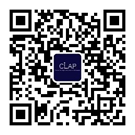摘要:In various theories of truth, people have set forth many definitions to make it clear in what sense a set of sentences is paradoxical. But what, exactly, is a paradox per se? It has not yet been realized that there is a gap between ‘being paradoxical’ and ‘being a paradox’. This paper proposes that a paradox is a minimally paradoxical set meeting some closure property. Along this line of thought, we give five tentative definitions based upon the folk notion of paradoxicality implied in Tarski’s undefinability theorem of truth and the dependence relation proposed by Leitgeb (2005). A definition of ‘being a paradox’ is acceptable if its extension must be sufficiently comprehensive to include all known paradoxes on the one hand, and its standard must also be high enough to exclude those that are evidently not paradoxes on the other hand. It turns out that only the last attempt is acceptable: a set of sentences is a paradox if it is paradoxical and self-dependent, and at the same time, it and any of its paradoxical and self-dependent subsets bisimulate each other. In this way, we articulate in what sense a set of sentences is a paradox, and so establish a connection between the notion of a paradox and the notion of paradoxicality.
To be or Not to be a Paradox, That is a Question
发布:
- 地址|邮编:广东省广州市天河区中山大道西55号文科楼220&221室|510631
- 邮箱:gw_logic@scnu.edu.cn
- 电话:(020) 8521 6452
- 华南师范大学官网:https://www.scnu.edu.cn
- 华南师范大学哲学与社会发展学院官网:http://zhx.scnu.edu.cn
华南师范大学 版权所有
Copyright © 2026 South China Normal University. All Rights Reserved



